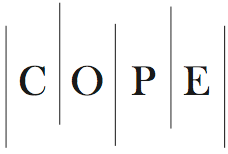About Disabilities
Aims
Disabilities (ISSN 2673-7272) is an open access journal covering a broad range of issues related to the physical, biopsychosocial, and environmental aspects of disability. Due to the varied nature of this field, we publish:
- Research results (original research, controlled trials, case studies, feasibility and pilot studies across research paradigms);
- Research protocols and novel use of diagnostic or intervention instruments (introduction of novel approaches to disability, support and innovations which advance inclusion, diagnostic and intervention scales, validation of instruments);
- Review articles (systematic reviews, scoping reviews);
- Theoretical and conceptual papers; and
- Country-/region-specific research (including transnational disability studies).
Scientists are encouraged to publish their experimental and theoretical results in as much detail as possible. Therefore, the journal has no restriction on the maximum length of the papers. Full experimental details should be provided so that results can be reproduced.
The goal is to ensure that Disabilities is inclusive of all types of disability, across all ages and contexts, while remaining attractive for prospective submissions. We particularly welcome articles from low- and middle- income countries and articles that are authored/co-authored by people with the lived experience of disabilities.
Disabilities acknowledges that there are several models or frameworks that conceptualize the experience of disability. Disabilities is not aligned to one model over others; however, the International Classification of Functioning (ICF; World Health Organization, 2012) represents the most commonly used global framework. According to the biopsychosocial model embedded in the ICF, disability and functioning are outcomes of interactions between health conditions (diseases, disorders, and injuries) and contextual factors. The model recognizes that disability is multidimensional and is the product of complex and situated interactions between an individual’s attributes and their environments. It broadens the perspective of disability and allows for the examination of medical, individual, social, and environmental influences on functioning, disability, and ability occurring in a historical and cultural setting.
Scope
Disabilities invites submissions from a range of topics that relate to how individual and contextual factors interplay with and impact the lives of persons with disabilities, as well as the implications these have on theory, methodology, policy, and practice. The following list of topics is provided as a guide with which to outline the relevant research areas, and is not intended to be exhaustive.
Impairment
Physical Health
- Physical activity;
- Injury and chronic illness;
- Rehabilitation, including assistive technology.
Mental Health
- Quality of life and well-being;
- Intellectual, learning, and cognitive disability.
- Assessments of and interventions for physical and mental health disabilities.
Social (Participation Restrictions)
- Public health challenges;
- Practices that promote inclusivity and equity;
- Human rights and advocacy;
- Family support and family-centered care.
Environmental (Activity Limitations)
- Inclusive and special education;
- Economy and employment;
- Universal design and accessibility across systems.
Theory and Methodology
- Advancement of disability theory and methodology;
- Research co-designed with and builds capacity of persons with disabilities.
MDPI Publication Ethics Statement
 MDPI is a member of the Committee on Publication Ethics (COPE).
MDPI takes the responsibility to enforce a rigorous peer-review together with strict ethical policies and standards to ensure to add
high quality scientific works to the field of scholarly publication. Unfortunately, cases of plagiarism, data falsification, inappropriate
authorship credit, and the like, do arise. MDPI takes such publishing ethics issues very seriously and our editors are trained to proceed in
such cases with a zero tolerance policy. To verify the originality of content submitted to our journals, we use iThenticate to check submissions against previous publications.
MDPI is a member of the Committee on Publication Ethics (COPE).
MDPI takes the responsibility to enforce a rigorous peer-review together with strict ethical policies and standards to ensure to add
high quality scientific works to the field of scholarly publication. Unfortunately, cases of plagiarism, data falsification, inappropriate
authorship credit, and the like, do arise. MDPI takes such publishing ethics issues very seriously and our editors are trained to proceed in
such cases with a zero tolerance policy. To verify the originality of content submitted to our journals, we use iThenticate to check submissions against previous publications.
Book Reviews
Authors and publishers are encouraged to send review copies of their recent related books to the following address. Received books will be listed as Books Received within the journal's News & Announcements section.
MDPI
St. Alban-Anlage 66
CH-4052 Basel
Switzerland
Copyright / Open Access
Articles published in Disabilities will be Open-Access articles distributed under the terms and conditions of the Creative Commons Attribution License (CC BY). The copyright is retained by the author(s). MDPI will insert the following note at the end of the published text:
Reprints may be ordered. Please contact for more information on how to order reprints. Announcements regarding academic activities such as conferences are published for free in the News & Announcements section of the journal. Advertisement can be either published or placed on the pertinent website. Contact e-mail address is . For further MDPI contacts, see here.Reprints
Announcement and Advertisement
Editorial Office
Contact us



